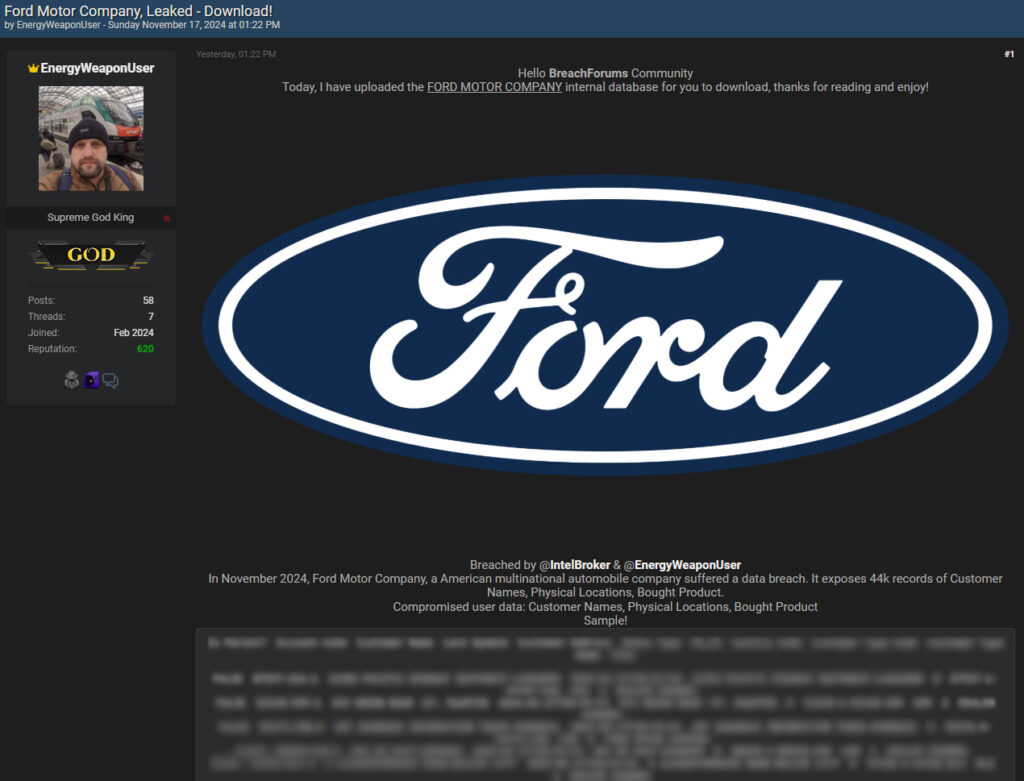
A threat actor has claimed responsibility for breaching Ford Motor Company's internal database, exposing more than 44,000 customer records. The alleged data shared on a prominent hacking forum includes sensitive details such as customer names, physical locations, and purchased products. The breach was reportedly carried out by a group associated with the notorious hacker IntelBroker, whose name has been linked to several recent high-profile cyber incidents.
The breach was first announced on Sunday by a user identified as “EnergyWeaponUser” on BreachForums. The post included samples of the compromised data and provided access to the complete dataset for a mere 8 credits — equivalent to virtually giving it away for free. The sample data revealed customer records from multiple countries, including the United States, China, Japan, and others, categorized by sales channels and locations.

Ford Motor Company, an American multinational automobile giant founded in 1903, is one of the world's largest automotive manufacturers. Its operations span over 125 countries, with extensive customer bases in North America, Europe, and Asia. The potential exposure of sensitive customer information raises significant privacy and reputational concerns, especially as the leak includes details of dealers and buyers, potentially enabling further misuse or phishing attacks.
The post implicates IntelBroker, a hacker notorious for leaking sensitive data from major organizations. IntelBroker's involvement adds weight to the credibility of the claims, given their history of high-profile breaches. Most recently, the hacker publicly leaked Nokia's source code after the company denied any data compromise. IntelBroker's track record suggests a pattern of targeting large corporations, either for financial gain or to undermine denials of breaches.
The Ford breach follows a similar trajectory. By sharing the data for a negligible amount, the hacker signals an intent to tarnish Ford's image rather than profit significantly from the breach. It remains unclear how the hackers gained access to Ford's internal systems, though third-party vulnerabilities or weak internal protocols are likely vectors.
As of now, Ford has not confirmed the validity of the claims, and the company has not responded to our inquiries. We will update this post when we receive a response from Ford.
The 44,000 figure indicates that the scope of the incident is limited to a country/region or a narrow time, but without more details, it casts a shadow above Ford's massive client base, forcing everyone to be on high alert for phishing and scams.







Leave a Reply